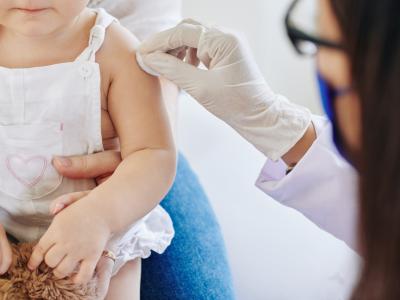Apr 18, 2013
Expert group reports slow progress in drug pipeline to fight 'superbugs'
Despite an increased urgency for new antibiotics to fight increasingly drug-resistant, deadly bacteria, the US Food and Drug Administration (FDA) has approved only one new systemic antibiotic since 2010, and that was more than 2 years ago, the Infectious Diseases Society of America (IDSA) said in a report today in Clinical Infectious Diseases. The IDSA launched its "10 X '20" initiative in 2010, which "calls for development and regulatory approval of 10 novel, efficacious, and safe systemically administered antibiotics by 2020" to combat resistant pathogens, the IDSA said in today's report. The group identified seven new drugs in development for combating multidrug-resistant Gram-negative bacilli (GNB), which the US Centers for Disease Control and Prevention (CDC) last month called "nightmare bacteria." None of them, however, will work against the most resistant bacteria strains, the IDSA said. "We're
losing ground because we are not developing new drugs in pace with superbugs' ability to develop resistance to them. We're on the precipice of returning to the dark days before antibiotics enabled safer surgery, chemotherapy and the care of premature infants. We're all at risk," lead author Helen W. Boucher, MD, said in an IDSA news release today.
Apr 18 Clin Infect Dis report
Apr 18 IDSA news release
Preliminary study suggests 2 licensed antivirals may work against nCoV
In a preliminary cell-culture study, researchers writing in Scientific Reports today said they have identified two existing drugs that may help treat the novel coronavirus (nCoV) that has infected 17 people and killed 11 in recent months, many from the Arabian Peninsula. The team, from the National Institutes of Health (NIH), found that a combination of ribavirin and interferon-alpha 2b stopped nCoV from replicating in two types of laboratory-grown monkey kidney cells. "The combination could be used to treat patients infected with the new coronavirus, but more research is needed to confirm this preliminary finding," an NIH press release today stated.
Apr 18 Sci Rep study
Apr 18 NIH press release
Global groups advocate for better child vaccine reach
Concerted efforts are needed to reach an estimated 22 million children in developing countries who remain unprotected by vaccines, the World Health Organization (WHO) said today in advance of World Immunization Week. The WHO and other groups have drawn up plans to ensure that: (1) more vaccines are developed, (2) packaging meets the needs of developing countries, (3) logistics are in place to sustain vaccine delivery, (4) information systems more accurately reflect needs, (5) the health workforce is fully staffed and motivated, (6) mobile technology is used to strengthen communication and data capture, (7) more resources are allocated to remote and marginalized groups, and (8) messages promote vaccines and highlight the dangers of not getting immunized. Many countries still face obstacles, according to a joint press release from the WHO, UNICEF, the GAVI Alliance, and the Bill and Melinda Gates Foundation (BMGF). World Immunization
Week starts Apr 20.
Apr 18 WHO/UNICEF/GAVI/BMGF joint press release























